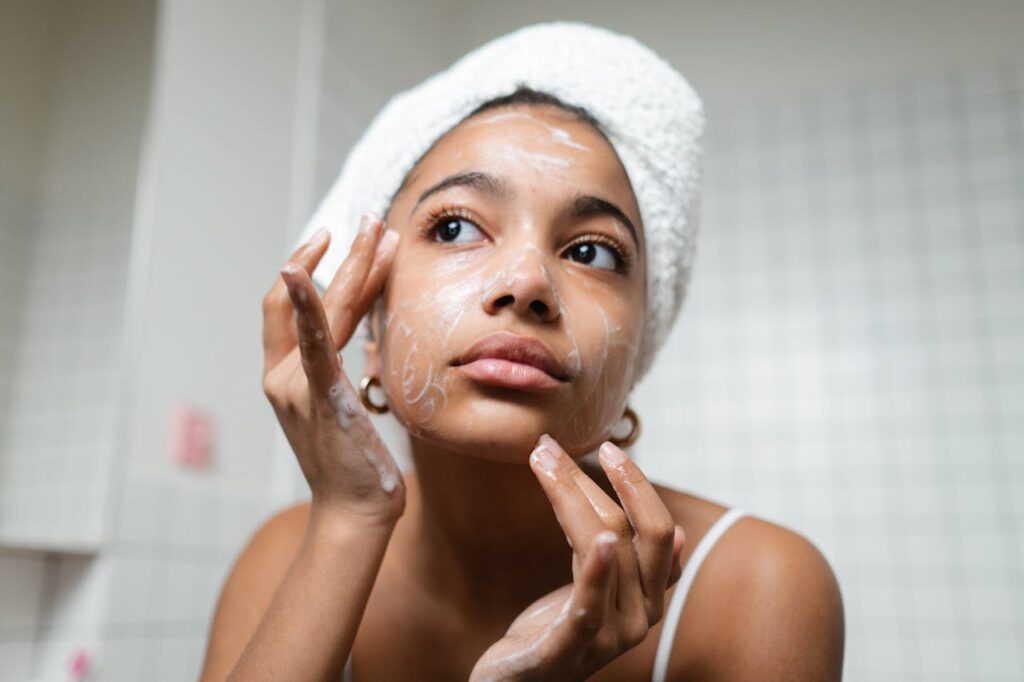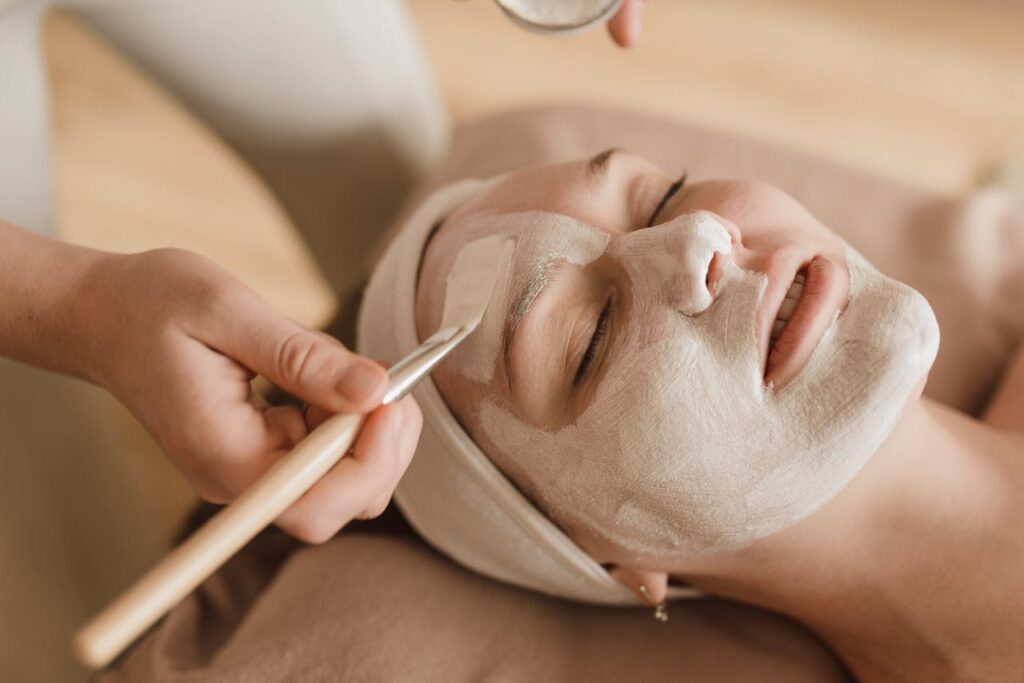Chemical peels are effective skin resurfacing treatments that improve the appearance of fine lines and wrinkles, minimize dark spots, and eliminate dry, flaking skin, but proper chemical peel aftercare in the days following your session will have a major impact on your results. Today, we’re discussing how to minimize the side effects of a chemical peel and transform your face with appropriate aftercare.
What should you expect after a chemical peel?
Chemical peels remove the outermost layer of dead skin cells on your face using specialized topical formulations of glycolic, alpha-hydroxy, and trichloroacetic acid. These treatments temporarily make your skin more sensitive to sun exposure, heat, and bacteria, leading to side effects like:
Redness
Redness is incredibly common during the chemical peel aftercare period, and may last from a few hours to a week or more. It may look and feel like a mild sunburn.
Tingling
It’s normal to feel a slight burning, tingling, or tightness as your dead skin begins to shed and new cells emerge. This sensation should resolve within a few days.
Peeling
Dry, flaky skin is another typical reaction to chemical peels. Superficial treatments may stimulate minor flaking for a few days, while deeper applications may result in shedding that lasts more than a week post-peel.
Read more: How Much Is a Chemical Peel?
Chemical peel aftercare tips for healthy, glowing skin
With the standard side effects in mind, let’s discuss how adequate chemical peel aftercare can soothe your skin and promote the healing process.
Cleanse your skin gently

Harsh cleansers and hot water are off-limits as your skin recovers from a chemical peel.
Instead, use a gentle, fragrance-free cleanser and cool water to wash your face and pat dry with a clean, soft towel to eliminate harmful bacteria and combat inflammation.
Avoid direct sun exposure
Chemical peels increase photosensitivity, so it’s essential to stay out of the sun pre- and post-treatment. Direct exposure could increase the risk of dark spots, hyperpigmentation, and an uneven skin tone. If you must go outside, keep it brief, wear a wide-brimmed hat, and…
Use a broad-spectrum sunscreen
A high-quality broad-spectrum sunscreen is a key component of any chemical peel aftercare routine. Choose a mineral-based formula with zinc oxide or titanium dioxide and an SPF of 30 or higher.
Remember that ambient sunlight can still damage your sensitive skin, so wear it every day, even when you plan to stay indoors. If you’re out and about, reapply every two hours to maintain adequate coverage.
Avoid exfoliating
It’s easy to over-exfoliate your skin after a chemical peel, which can cause rawness, irritation, and scarring. Skip this step in your skincare routine until after your face has had time to heal.
Stay hydrated
Skin repair and cellular regeneration start from within, so drink plenty of water every day to support the healing process and minimize flaking.
Keep skin moisturized
A soothing moisturizer will help combat that dry, tight, irritated feeling and support your skin’s moisture barrier. Stick to non-comedogenic products and avoid lotions and creams with artificial fragrances and harmful preservatives.
Avoid picking at skin
It can be hard to keep your hands off your face when you notice dry, flaking skin, but this is another critical component of chemical peel aftercare. Picking at skin can cause scarring, infections, and long-lasting discoloration. Allow dead skin cells to shed naturally, and remember that adequate hydration and a great moisturizer will help.
Related reading: Guide to SkinPen Microneedling Aftercare
What to watch out for after your chemical peel
During the chemical peel aftercare period, monitor your skin for adverse reactions. Reach out to your esthetician if you notice excessive effects, such as:
Excessive redness and swelling
Redness or swelling that spreads, intensifies, or feels extremely inflamed may indicate unusual irritation or an infection. These responses should improve in the days after your chemical peel, especially if you’re following proper aftercare instructions.
Allergic reactions
In rare cases, allergic reactions may occur after a chemical peel, marked by severe itching, rash, hives, or trouble breathing. If you experience these symptoms, reach out to your healthcare provider right away.
Changes in skin color
While it’s normal to notice a slight darkening of the skin before it begins to peel, persistent discoloration that doesn’t fade within a couple of weeks can indicate excessive sun exposure before or after your peel. Let your esthetician know as soon as possible, so they can formulate a treatment plan to restore your skin tone.
Scarring
If you follow the appropriate chemical peel aftercare instructions and avoid picking at your skin, scarring is rare. However, raised, thickened skin and deep indentations may signal a problem.
Signs of infection
Severe pain, pus, oozing, and a foul smell are all symptoms of infection, especially when accompanied by a fever. Reach out to your provider as soon as you notice these signs to prevent complications.
Related: Do Chemical Peels Reduce The Appearance of Wrinkles?
Explore Image Skincare medical-grade chemical peels at The Wellness Club!
From chemical peels and microneedling to hormone replacement therapy and weight management services, The Wellness Club is here to help you achieve optimal health and a vibrant appearance. Book a consultation today!

